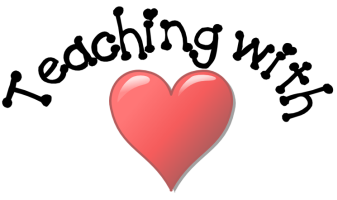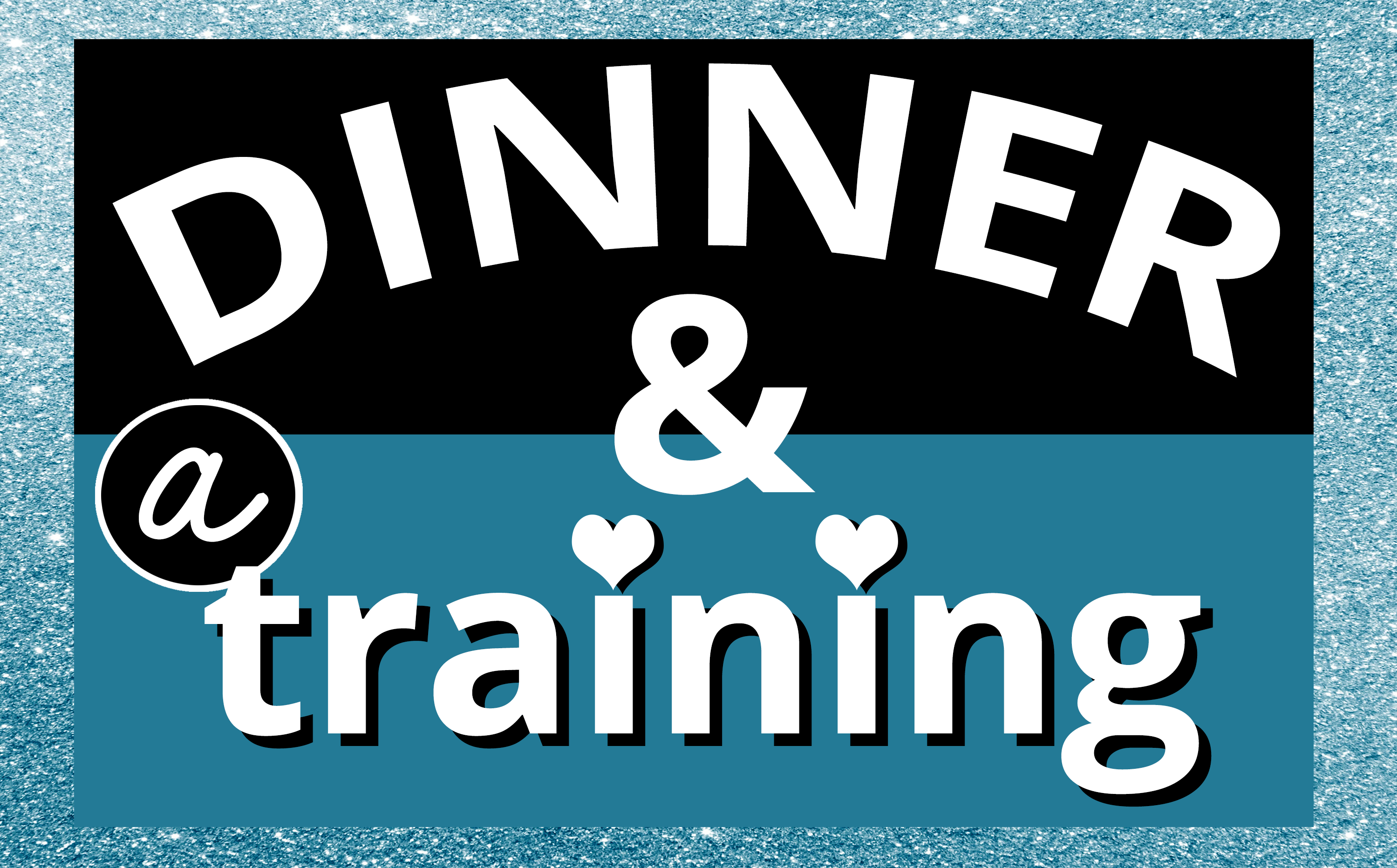


ONLINE trainings.
100% of the proceeds go to charity. In 2026, they'll continue helping build homes and providing food and medical supplies for people in need in Honduras. I am blessed to be able to serve there twice a year.

January 6: “Thinking Outside the Book: Bringing Stories to Life” (KCF: II.A, CDA: 2)
Remember when kids sang, "I can go anywhere...I can do anything...Take a look, it's in a book." Learn how to feel that way about reading with your children. Bring the happily ever after back into your stories' endings with ideas to expand learning and literacy beyond the pages of your books, with specific activities to complement some awesome books that are sure to become favorites in your childcare. You'll discover that "The End" is only the beginning of the joys of reading.
January 27: “Group Time: Thinking Outside the Circle” (KCF: II.C, CDA: 3)
Make group time fun and educational with activities and strategies that benefit every child, including ways to encourage everyone to participate. Explore many new games, songs, stories, and activities that will foster each child’s social, emotional, physical, and cognitive development. Discover the benefits of group time, learn how to adjust times and activities based on the needs of each child, and find some helpful resources. Get ready to be amazed when the children beg you for group time.
* This 2-hour training meets the annual child care behavior guidance training requirement. *
February 10: “Parents & Policies: #NoProblem” (KCF: III, CDA: 4)
Fostering a positive partnership with parents and having effective policies will benefit you, the parents, and the children in your care. Yes, you can have both good policies and good relationships with your families! Learn how to maintain harmony and trust in your relationships with parents and create—and enforce—excellent policies. Discover effective communication strategies for even the most challenging situations and how to proactively avoid/anticipate them. Explore activities, events, and parent conferences that empower parents to collaborate in their children’s learning. The next time a parent questions your policies or insists that fever is “just teething,” you’ll think: #NoProblem.
February 12: “I’m Not a Preschooler! Infant & Toddler Activities” (KCF: II.A, CDA: 2)
You may not see infants carrying backpacks to school, but they certainly feel the weight of push-down curriculum. Many infants and toddlers spend their days in structured, preschool-like settings…but they are not preschoolers! Learn about the unique needs and stages of development of infants and toddlers. Discover how to meet infants and toddlers where they are—through responsive caregiving—and guide them to where they can be through child-led environments that encourage their curiosity. Explore many fun, inexpensive, and developmentally appropriate infant and toddler activities that will have your preschoolers wishing they were infants and toddlers again.
February 26: “Cutting Loose with Loose Parts” (KCF: II.A, CDA: 2)
Loose parts might look like junk to others, but to children they contain a world of possibilities. Loose parts are open-ended materials that foster children’s curiosity, imagination, creativity, discovery, decision-making, teamwork, confidence, problem-solving, science, math, critical-thinking, language, social, and physical skills. Bonus: they are typically free or inexpensive. Experience the joy and benefits that encompass loose parts play in this online training. Leave with many new ideas for loose parts that are sure to become favorites with your children. Get ready to cut loose and kick off the Sunday shoes…because even those would make fun loose parts!
March 5: “Outdoor Activities” (KCF: II.A, CDA: 2)
Brighten your days and improve children’s physical, cognitive, social, and emotional development with outdoor activities. In this fun online training, discover new games, activities, and materials that will make you and the children want to go outside, regardless of the weather. Learn simple and inexpensive ways to add imagination and enrichment to your outdoor areas, just as you do with your indoor areas. From pool noodles and water to relays and treasure hunts, you will be inspired to try a new activity every day and bring out some old ones with new twists.
March 10: “No Child Left Inside” (KCF: II.D, CDA: 2)
There is an alarming trend to replace children’s outdoor playtime with rigorous instruction, testing, and screen time. However, numerous studies show that children who play in nature will be healthier, happier, smarter, more connected with nature, and better able to get along with others. Children thrive in natural play environments, where they are free to explore, climb, run, connect with others, and understand nature. In this online training, we’ll discover the benefits of play in nature, ideas for natural playscapes, and fun ways to bring nature into our programs to ensure that no child is left inside.
March 12: “Mealtime Fun” (KCF: VII.C, CDA: 1)
Bring your inner chef (and appetite) to explore activities, strategies, and foods to create fun mealtimes with children. Learn how setting healthy eating and table habits now will make a difference throughout their lives. We’ll discuss simple ways to make ordinary foods seem extraordinary, from the words you use to the arrangements on the plate. Discover ways to work with picky eaters and accommodate dietary restrictions. Explore and prepare many unique, fun, and inexpensive foods that are sure to become favorites with the children in your care—and you—in this online training.
March 26: “Every Child is an Artist” (KCF: II.C, CDA: 3)
Picasso once said, “Every child is an artist." Art offers children fun opportunities to express themselves freely and creatively, improving their overall development. Art boosts children’s self-esteem, empathy, self-regulation, cooperation, problem-solving skills, socialization, fine motor skills, love for life and learning, and so much more. Art introduces new concepts to children in non-threatening and playful ways and helps children understand the world around them. Through hands-on exploration with a variety of art materials, activities, and strategies for children of all ages and abilities, you’ll discover these benefits and leave inspired to celebrate and encourage the artists in your program.
* This 2-hour training meets the annual child care behavior guidance training requirement. *
March 31: “It's SO Easy Being Green” (KCF: VII.A, CDA: 1)
Kermit the Frog was right about most things but being green is much simpler and easier than it used to be! Help your loved ones stay safe and healthy with tips, scientific evidence, and specific solutions for making your home, business, and life more "green," from chemicals to food, recycling to toys. Once you learn how to make your own natural cleaning supplies, soaps, and scrubs, you’ll be surprised at how much green you can save!
April 7: “Let's Love Literacy” (KCF: II.B, CDA: 2)
Jump into the world of literacy and discover how you can help children love it as much as you will. Explore fun, simple, and effective strategies, environmental items, and activities you can add to boost children’s literacy skills. Walk through libraries, listening centers, word walls, writing centers, games, art, and other opportunities to expand literacy skills. Dive into some popular children’s books and reading strategies that will surely become favorites of yours and the children in your programs. You will literally love literacy by the end of this class.
April 14: “Keep It Positive: Behavior Guidance That Works” (KCF: II.C, CDA: 3)
Hit. Kick. Tattle. Whine. Does this sound like a typical day in your program? Let’s change that! Help children identify their feelings, express them appropriately, resolve conflicts, boost self-esteem, increase empathy, and improve communication through positive behavior guidance, your environment, and simple, yet effective, tools. You’ll leave ready to tame tantrums, wane whining, prevent pushing, banish biting, thwart tattling, halt hitting, stop screaming, lessen lying, and more.
* This 2-hour training meets the
annual child care behavior guidance training requirement. *
April 28: “The Little STEAM Engines That Could” (KCF: II.B, CDA: 2)
Discover why STEAM is more than an acronym. It is an integrated way of teaching children or all ages the concepts of science, technology, engineering, art, and mathematics. Learn how STEAM fosters and uses children’s higher order thinking skills: problem-solving, observation, communication, critical thinking, reasoning, teamwork, and creativity. Explore natural, simple, and fun ways to incorporate STEAM into your program through hands-on stations, from water activities and magnets to mosaics and outdoor play. Cultivate wonder through STEAM, creating a foundation of learning for school and lifelong success and an attitude that, “I think I can!”
April 30: “Community Service for Children” (KCF: III, CDA: 4)
Community service offers children the wonderful opportunity to help others, learn compassion, appreciate what they have, respect diversity, connect with their communities, and realize that they can make a difference in the world. Discover ways to integrate service projects with your curriculum and involve families in order to make the biggest impact on both the children and the groups you’re helping. We’ll discuss many possible community service projects for children of all ages—from making sandwiches for people experiencing homelessness to filling birthday bags for children in need.
May 5: “Discovery Bottles” (KCF: II.B, CDA: 2)
Capture the wonder and excitement of density, magnets, sound, seasons, waves, light, and much more in a simple bottle…with items found around the home. Discovery bottles bring science into the hands of children in unique ways and foster their cognitive development through independent and collaborative exploration. They are also relaxing and fun for both children and adults. You will learn specific ideas for Discovery, I Spy, Letter, and Scents-ory Bottles and create 2 of your own in this fun “make & take." Warning: May instill an immediate desire to consume massive amounts of bottled water.
May 12: “Play is Not a Four-Letter Word” (KCF: II.A, CDA: 2)
Play is not a luxury but a fundamental part of learning. Unfortunately, society is robbing children of their childhood by eliminating play and treating them like mini adults. However, a play-based, child-directed approach facilitates children’s inherent desire to learn instead of forcing it. Play creates opportunities for children to explore, imagine, discover talents, spark creativity, gain confidence, build relationships, problem-solve, resolve conflicts, expand language, define themselves, and grow intellectually, physically, socially, and emotionally. Learn about the benefits of play while exploring fun and simple activities that foster play and be encouraged to celebrate and defend children's need for play.
Hollee (M.A. Early Childhood Education) has loved working for 30+ years with children of all ages in various schools and programs—including 21+ years as a licensed family child care provider—promoting play and child-directed learning. She loves sharing her passion by providing trainings and resources for early childhood and school-age care professionals. When Hollee's not teaching children, presenting trainings, serving on her local school board, designing websites, or advocating for child care and education, she loves spending time with her family and friends, volunteering, playing board games and cards, and baking.

* All trainings are Devleop-approved and presented by Hollee Saville.
* Registrations are nonrefundable and cannot be exchanged for a different class.
* Refunds will be given only if I cancel the class.
* A minimum of 20 participants is required for each class; please invite others.
* Your attendance will be entered into Develop within 72 hours of each class.






